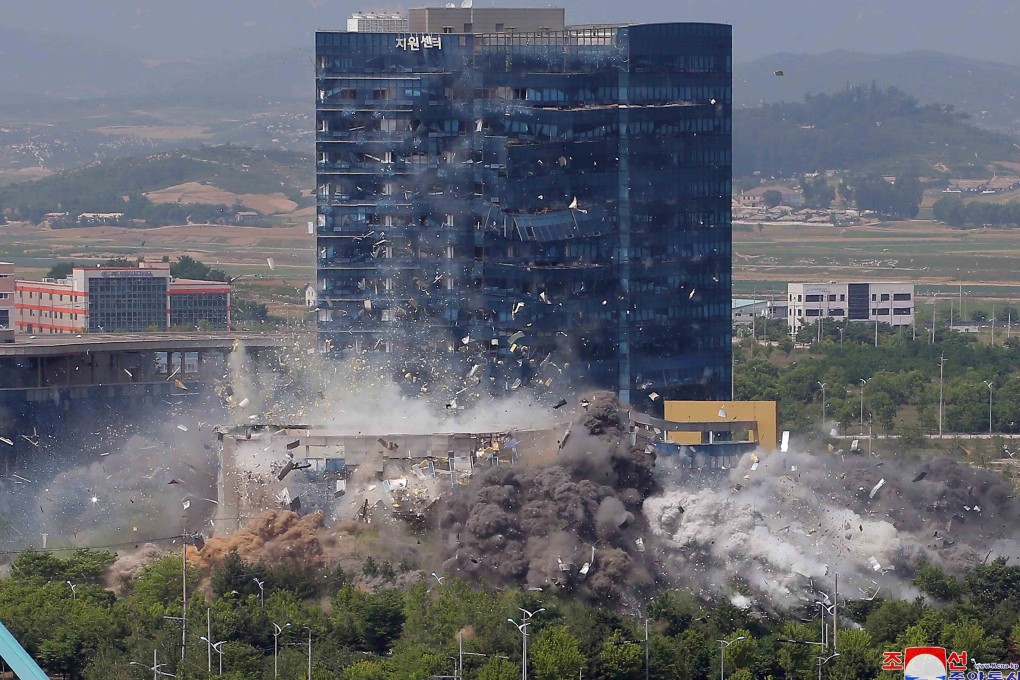Advertisement
Moon Jae-in’s vision of peace with North Korea goes up in smoke
- When Pyongyang blew up the inter-Korean liaison office, hopes of a new era of reconciliation with Seoul appear to have gone with it
- With his signature policy in tatters, the South’s leader is in a bind – prevented by the US from mending fences with an increasingly hostile neighbour
Reading Time:4 minutes
Why you can trust SCMP

When South Korean President Moon Jae-in and North Korean leader Kim Jong-un held their historic first summit in April 2018, the two leaders declared the beginning of a new era of peace and reconciliation.
Last week, a key symbol of that vision, enshrined in the Panmunjom Declaration promising “peace, prosperity and reunification of the Korean peninsula”, literally went up in smoke when the North blew up the inter-Korean liaison office.
After staking much of his presidency on inter-Korean reconciliation, Moon’s signature foreign-policy vision now appears to be on life support, with no path to recovery.
Advertisement
“Moon’s peace and reconciliation policy appears to have failed in achieving its goals,” said Lim Jae-cheon, a professor of North Korean studies at Korea University in Seoul. “Moon probably will have great difficulty in reviving relations for the rest of his term.”

02:44
North Korea ‘blows up’ inter-Korean liaison office in Kaesong
North Korea ‘blows up’ inter-Korean liaison office in Kaesong
The demolition on Tuesday was only the most explosive moment of an escalating pressure campaign by the North seen by analysts as intended to push Moon to split from the United States and ease sanctions aimed at the regime’s nuclear weapons and missile programmes.
Advertisement
The show of force followed weeks of threats by the North Korean leader’s influential sister, Kim Yo-jong, against the South for allowing defector activists to fly propaganda leaflets across their militarised border.
Advertisement
Select Voice
Select Speed
1.00x